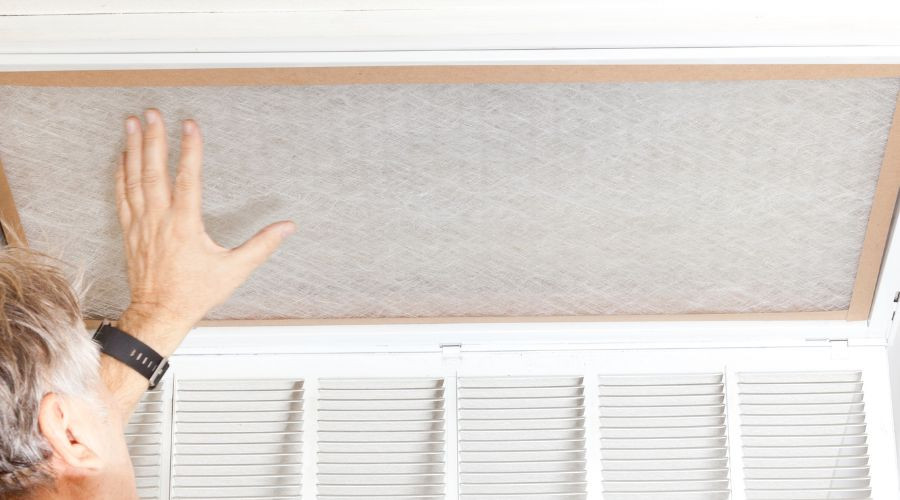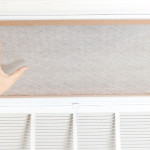All About AC and Furnace Filters
Air filter replacement is vital for good indoor air quality and reducing allergy symptoms. This article explores the role of air filters in heating and air conditioning systems, including what they do, how often they should be changed, and the advantages of replacing them when needed. Understanding how air filters function can significantly improve indoor air quality and system performance.
What Do Air Filters Do?
When creating a healthier, more efficient home environment, few things are as cost-effective or as often overlooked as the air filters in a heating and air conditioning system. These simple yet powerful components trap contaminants and pollutants before they circulate throughout the home. Whether dust, pet hair, or other allergens, air filters are the home’s first barrier against particles that compromise comfort and health.
Clean air filters also significantly impact the performance of heating and cooling systems. As air circulates through the HVAC system, it passes through a filter designed to catch debris before entering the ductwork or settling on sensitive parts like the evaporator coils or blower motors. If a filter becomes clogged, airflow is restricted, forcing the system to work harder. This results in unnecessary energy consumption and puts additional wear on the equipment, shortening its lifespan and leading to costly repairs.
Regular filter replacement ensures the system can run smoothly and efficiently. It protects internal components from dirt buildup, helping keep energy bills low. Plus, homes with clean filters tend to have less dust buildup and a more consistent comfort level. For homeowners, replacing filters regularly is an easy habit that pays off in cleaner air, reduced costs, and longer-lasting HVAC performance.
How Often Should Air Filters Be Replaced?
 Regular air filter replacement is crucial for maintaining clean air, optimal HVAC performance, and a healthy indoor environment. Most filters should be changed every 1–3 months, although this varies depending on filter type, household conditions, and environmental factors. For example, basic fiberglass filters often require more frequent replacement than pleated filters. A simple way to check the filter condition and determine whether it needs replacing is to hold it up to a light source; if light cannot pass through, it should be replaced. Or if it looks visibly dirty, it should be replaced.
Regular air filter replacement is crucial for maintaining clean air, optimal HVAC performance, and a healthy indoor environment. Most filters should be changed every 1–3 months, although this varies depending on filter type, household conditions, and environmental factors. For example, basic fiberglass filters often require more frequent replacement than pleated filters. A simple way to check the filter condition and determine whether it needs replacing is to hold it up to a light source; if light cannot pass through, it should be replaced. Or if it looks visibly dirty, it should be replaced.
Certain conditions also necessitate more frequent changes. Homes with pets accumulate more dander and fur, which warrants more frequent AC and furnace filter replacements. Similarly, households in dusty environments or experiencing high pollen levels benefit from filter changes more often. A clogged filter can reduce system efficiency, leading to higher energy bills and diminished performance.
For individuals with allergies, asthma, or other respiratory concerns, filters can also be replaced more often to minimize triggers and support cleaner breathing environments. Homes with multiple occupants or frequent visitors often see a quicker buildup of particles, making timely filter changes even more important. Consistent maintenance not only supports respiratory health but also helps avoid expensive HVAC issues in the future.
Benefits of Timely Filter Replacement
 Replacing air filters on time offers numerous benefits, both immediate and long-term. Clean filters enhance HVAC efficiency, reducing energy usage and saving money on utility bills, while also promoting healthier indoor air. This simple task also plays a major role in protecting a home’s heating and cooling investment, helping extend the lifespan of HVAC equipment.
Replacing air filters on time offers numerous benefits, both immediate and long-term. Clean filters enhance HVAC efficiency, reducing energy usage and saving money on utility bills, while also promoting healthier indoor air. This simple task also plays a major role in protecting a home’s heating and cooling investment, helping extend the lifespan of HVAC equipment.
Proper filtration significantly reduces the concentration of the air's allergens, dust, and other contaminants. According to the EPA, indoor air may be two to five times more polluted than outdoor air, making regular filter maintenance a crucial step in safeguarding respiratory wellness. As filters become saturated, their ability to trap harmful particles declines, allowing pollutants to circulate freely.
Timely filter changes also help HVAC systems operate efficiently by preventing restricted airflow, which forces systems to overwork. Clean filters reduce wear on internal components, lowering the risk of breakdowns and prolonging the system's life. Changing filters when needed also helps save around 5–15% on utility bills. Consistent filter replacement is a cost-effective way to protect HVAC systems and ensure clean, healthy air throughout the home.
About Laney’s Inc.
Laney’s Inc. is a trusted plumbing, electrical, heating, and cooling service provider based in Fargo, ND. Since 1960, the company has proudly served the area, offering 24/7 emergency service with no overtime charges. Call them for heating and air conditioning services in Fargo, ND!



